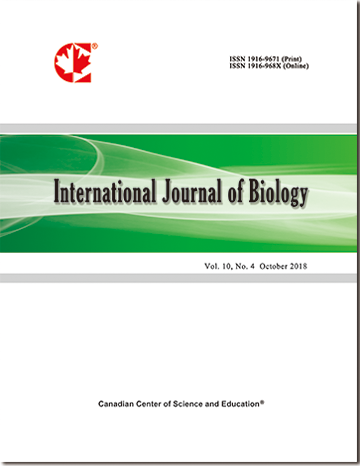Forms and Trends of Encroachments in Cross River National Park of Nigeria
- Henry Mmaduabuchi Ijeomah
- Edem Archibong Eniang
- Shafiu Kilishi Halidu
- Albert Nathan Onyejekwe
Abstract
Forms and trends of encroachments were investigated in Cross River National Park (CRNP) of Nigeria with the view of ascertaining the prevailing forms, trends, strategies of poaching and ecological consequences of illegal exploitations on the state of species in the biodiversity hotspot; that is contiguous with Korup and Takamanda national parks of Cameroon. Data for this study were obtained through personal observations, administrative record, structured questionnaires and in depth interview with experienced members of park protection staff who have been in the park for a minimum period of five years and are therefore quite knowledgeable about wildlife management and protection in the park. A set of questionnaire was randomly administered to 40 Park protection staff of CRNP in other to examine the forms, trends, intensity and reasons for encroachment in the park. Data on trend of arrest being an indicator of encroachment was collected from the administrative record of CRNP. Data obtained were analyzed using descriptive statistics in form of percentages and frequency of counts. Hunting (100%) and collection of Non Timber Forest Products (NTFPs) (75%) were implicated as the highest form of encroachment in the park while fuel wood collection (15%) was the least. The highest and lowest forms of arrest between 1991 and 2014 were 12.8% and 0.2% respectively. The least annual arrest (0.2%) recorded between 1991 and 2014 was in 1994 and 1995 respectively. Out of 616 arrests made between 1991 and 2014 34.%, 28.9% and 26.1% were for logging, hunting and collection of NTFPs respectively while aiding and abetting had the least record of only 1.6%. Nevertheless most respondents implicated households of host and enclave communities as encroachers (85.00%) and aiders of encroachments (95.0%) in CRNP. Cross River National Park is porous to non-seasonal encroachment as the anti poaching operations therein are ineffective.
- Full Text:
 PDF
PDF
- DOI:10.5539/ijb.v7n3p103
Index
- ACNP
- AGRICOLA
- BASE (Bielefeld Academic Search Engine)
- CAB Abstracts
- CiteFactor
- CNKI Scholar
- CrossRef
- DTU Library
- Elektronische Zeitschriftenbibliothek (EZB)
- Excellence in Research for Australia (ERA)
- Google Scholar
- Infotrieve
- LIVIVO (ZB MED)
- LOCKSS
- Max Planck Institutes
- MIAR
- PKP Open Archives Harvester
- Qualis/CAPES
- ResearchGate
- ROAD
- SafetyLit
- SHERPA/RoMEO
- Technische Informationsbibliothek (TIB)
- Universe Digital Library
- WorldCat
Contact
- Ryan JonesEditorial Assistant
- ijb@ccsenet.org
